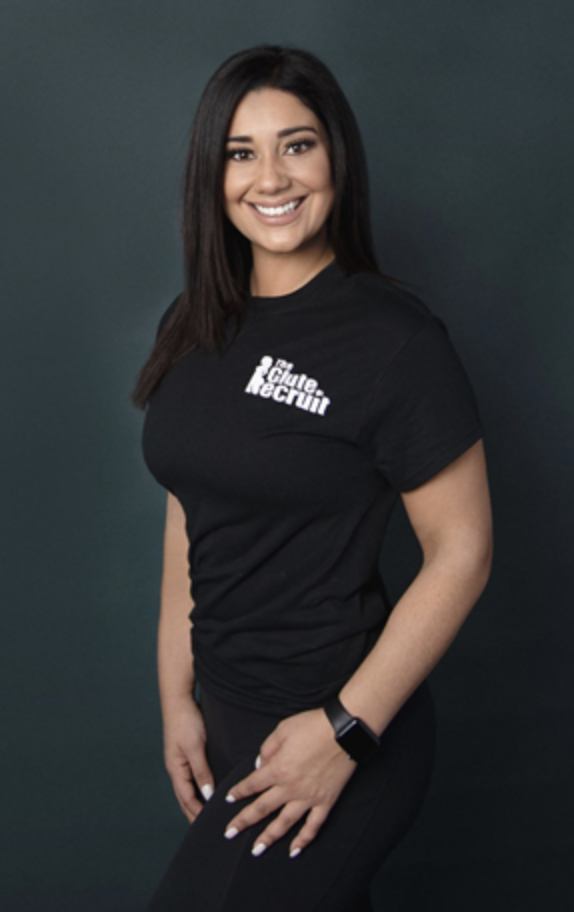According to the Bureau of Labor Statistics, there are approximately 338,000 personal trainers in The United States alone. Just like any other field, you have “rock stars” who are the real deal, some above average people, some who are merely competent, and others who have no business training people. We turned to Jessica Mazzucco, an NYC area certified fitness trainer and founder of the fitness platform www.theglutereceruit.com to help you assess where your trainer falls on the spectrum.
They Don’t Do Any Assessments on the First Session
“The best trainers perform thorough and complete assessments when working with a new client, before doing anything else, states Jessica.” She adds, “They don’t just hand you a dumbbell and ask you to copy them. On the training front, that means doing movement screening and even basic performance tests. And on the nutrition front, that means looking at the client’s current intake and assessing a host of lifestyle variables, including schedule, primary complaints/discomforts/allergies, willingness to change, and even blood pressure if a patient has issues. “
They look like they need a trainer
You want a trainer who practices what he/she preaches. This does not mean they need to look like an Adonis, but they should look like they are fit. They are walking billboards of their profession. If they can’t keep it together, how are they going to get you to your goals or preach to you about a lifestyle they cannot maintain themselves?
They entice you to book more sessions
“If you are already working out 3 to 5 days per week correctly, you shouldn’t have to work out more, “says Jessica. She adds, “If your trainer keeps telling you to work out more than five hours per week, not only do they have you on a poor workout plan, they also are not coaching you well enough on your eating habits. They may also be looking for you to spend more money with them.”
They Tell You to Stretch or Warm-up on Your Own
“This is absolutely crazy,” says Jessica. “People don’t generally know how to stretch on their own. – that’s part of why you pay a trainer! A good trainer should show you what movements to do, which muscles to focus on, explain the when and why of dynamic stretches over static stretching, and benefits of partner stretching. If a client goes and warms up on a stationary bike but has a core- dominant training program, the time has been wasted.”
They Don’t Give You Work to Do Outside of Sessions
Your personal trainer should be shown the door if they don’t give you work to do outside of your sessions together. If they charge you by the hour but don’t try to help you in the other hours in the week, that’s a red flag. Jessica points out that, “What you do in your one-hour session should help you to achieve your goals outside of your session. Good personal trainers give you homework, with a purpose.”
They Look at Their Phone While You’re Training
If your personal trainer is taking (non-emergency) texts and phone calls or checking social media in the middle of your session, they suck. There are no two ways about it. Jessica adds, “You pay them good money to pay attention to what it is you’re doing. It’s not safe, it’s not professional and it’s a complete waste of your time and money. You wouldn’t let your physician do that with you. A trainer needs to have his/her eyes on you all the time!”
They Talk More Than You Train
“If you want a companion, get a puppy,” Jessica says bluntly. Your trainer should be maximizing the time with you, not gossiping or telling his/her tales of woe. It’s fine to chit-chat with a trainer before the “clock starts” or after the workout has ended. The actual training time should be confined to instruction, supervision, coaching, your form and the workout you are doing. Jessica says, “With the exception of reasonable rest/water intake periods, you should be in motion/activity for the duration of the session.”
They put you on a bike, treadmill, or stair-master and stand there and watch
“Unless you need a bodyguard while you are on a machine you know how to operate, this is a complete waste of time, “says Jessica. She adds, “Your sessions are for being coached, strengthening your body and learning new techniques; not to be stood-by and watched for a complete hour doing the same thing. A good trainer will make sure that multiple body parts are being used and include cardio, body weight resistance, free weights, bands, medicine balls, machines, etc.”
They believe in “no pain no gain”
There is nothing wrong with doing crunches until you “feel the burn.” Pain is your body’s alarm to alert you that something is wrong: that you should, in fact, stop doing what you’re doing and figure out the problem. Jessica stresses that “There is a distinct difference between legitimate pain and the soreness you get when you exercise. If a muscle feels pulled, and you express that to your trainer, he/she should lay off training that muscle group until you are completely healed.” If you are beginning training with an existing injury such as a weak Achilles tendon, the trainer should be skilled enough to strengthen that area and avoid moves that will exacerbate it.
Body Shaming to Motivate
A good trainer should never use body shaming as a means to make you work harder. He/she should never say something like, “give me 30 crunches to burn that flab off your gut,” or “keep giving me those squats to burn the fat from your butt.” Jessica says that a trainer should motivate by focusing on the positive, with statements such as, “you’re so much stronger since we first began, your cardio has really improved, you’re becoming more flexible.” You must be empowered by your trainer, not belittled or ashamed.
Jessica Mazzucco is an NYC area certified fitness trainer and founder of The Glute Recruit® A native New Yorker, she graduated from SUNY Plattsburgh with a Bachelor’s Degree in Psychology and a Master’s Degree in Social Work from Adelphi University. The latter enables her to use skills of therapeutic communication and client centeredness to help her clients transition through change. Jessica has over 7 years of experience in the fitness industry and a multitude of diverse fitness certifications including :
World Instructor Training Schools (WITS) Personal Training Certification
National Posture Institute (NPI) Certified Posture Specialist + Certified Resistance Training Professional
ViPR – Vitality Performance Reconditioning – Level 1 Trainer
Kettlebell Athletics – Kettlebell Level 1 Trainer
Prenatal/Postnatal
SRT (Soft Release Technique) – Lower Body Fascial Stretch Therapist
Areas of Focus
Her specialties include butt sculpt/lift through exercise, resistance, strength and weight training for women, nutrition, muscle building, flexibility, mobility, posture enhancement, and pre and post-natal workout regimens. Jess has trained celebrities such as former MSNBC Legal Analyst Mimi Rocah and country singer Jessica Lynn.
Her personal journey
Jess has helped women worldwide achieve their fitness and lifestyle goals. She embarked on her own journey toward a healthier lifestyle in 2010 when she realized how unhealthy she was physically due to poor dietary choices and lack of exercise. Her weight gain had led her to develop low self-confidence and poor relationships with food. Healthy dietary changes and slow implementation of exercise helped Jess to become physically healthier and restore her self-esteem. This success gave her the platform to pursue a career in fitness and personal training. Her mission is to educate women on how to take control of their lives and become the healthiest versions of themselves without setting unrealistic goals of an “ideal” body type.



Speak Your Mind